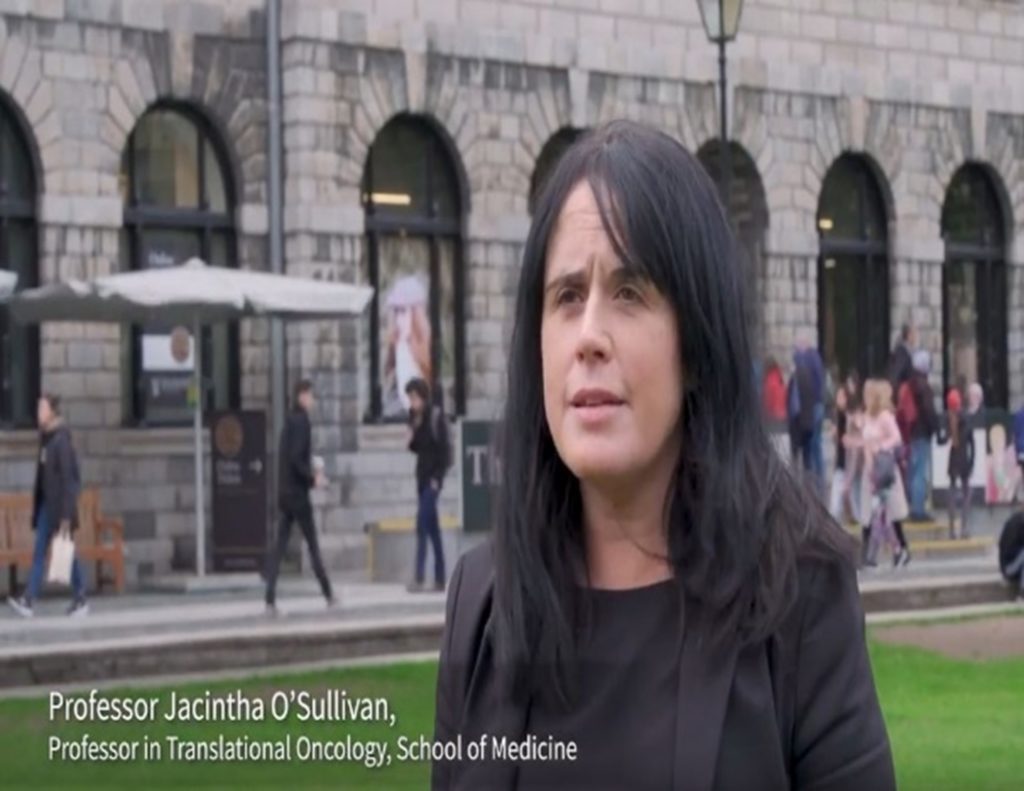Gold-drug: Targeting a novel dual inhibitor drug with gold nanoparticles for improving radiation response in oesophageal cancer

Oesophageal cancer (cancer of the food pipe) has low survival rates and a very poor response to treatment. Sadly, this cancer type is on the rise in Ireland and is linked with increasing obesity rates. Unlike many other cancer types, we are still only using treatments that have existed for decades – chemotherapy drugs with radiation treatment (CRT) to kill the cancer cells followed by surgery. However, the tumours in a large percentage of patients (70%) do not respond. As most patients go through CRT for no benefit, whilst enduring significant side effects, it is really important for the majority of patients that we can make their tumours sensitive to treatment.
Cancer cells do two things to prevent radiation from killing them, they (1) generate a lot of energy and (2) send out signals to trick your body, for example, they encourage blood vessels in your body to grow to the tumour so it can get more nutrients. This allows the tumour to survive instead of dying.
We discovered a novel drug called CC8 that stops cancer cells doing these two things in oesophageal cancer cells and can increase response to treatment in resistant cells. In this grant, using patient tumour samples and in mouse studies, we will package our drug with tiny gold particles. This packaging will make our drug go to the tumour and target the powerhouse of the cells that provide the energy for the cancer cells to survive. We will see how well this new combination works in oesophageal cells in the lab, in patient tumour samples and mice.









 Contact
Contact